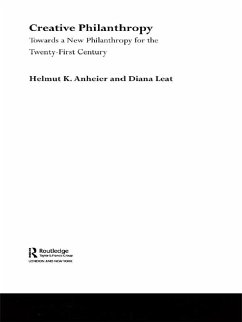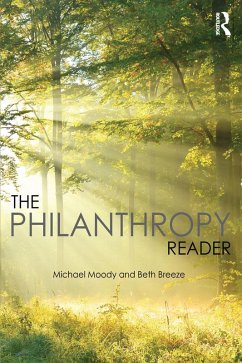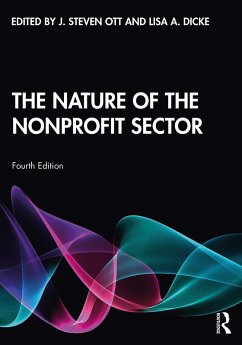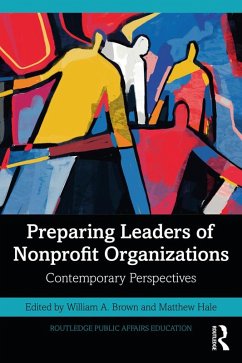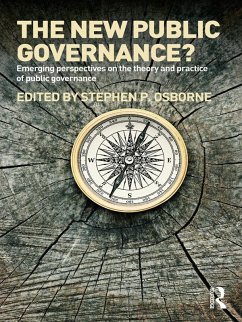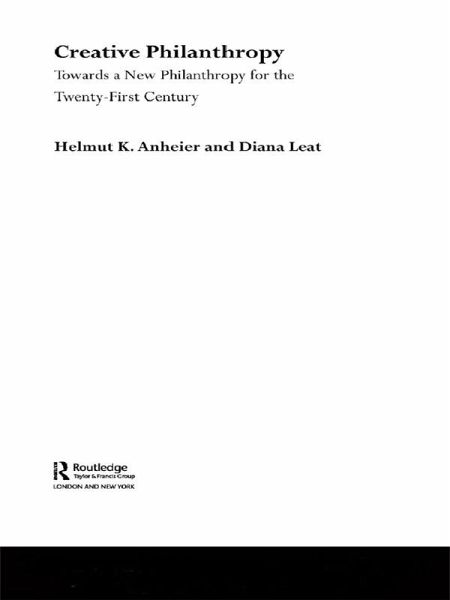
Creative Philanthropy (eBook, ePUB)
Toward a New Philanthropy for the Twenty-First Century
Versandkostenfrei!
Sofort per Download lieferbar
55,95 €
inkl. MwSt.
Weitere Ausgaben:

PAYBACK Punkte
28 °P sammeln!
Philanthropy and endowed foundation are vitally important institutions of modern society, yet in recent years, they've faced new threats such as declining resources and questions of accountability and performance. To address these questions, individual philanthropists and foundation leaders have looked to strategic philanthropy to become more effective and efficient.This important book provides an overview of creative philanthropy along with an analysis of its theory and practice. The authors spell out the implications of their study for management and policy and provide readers with vital too...
Philanthropy and endowed foundation are vitally important institutions of modern society, yet in recent years, they've faced new threats such as declining resources and questions of accountability and performance. To address these questions, individual philanthropists and foundation leaders have looked to strategic philanthropy to become more effective and efficient.
This important book provides an overview of creative philanthropy along with an analysis of its theory and practice. The authors spell out the implications of their study for management and policy and provide readers with vital tools and techniques. Drawing on case study examples and incorporating sections on key questions and dilemmas, this revealing book covers:
Essential reading for all those who study or work in foundations, philanthropy and non-profit organizations, this volume clearly navigates a path through this significant yet highly complex subject area.
This important book provides an overview of creative philanthropy along with an analysis of its theory and practice. The authors spell out the implications of their study for management and policy and provide readers with vital tools and techniques. Drawing on case study examples and incorporating sections on key questions and dilemmas, this revealing book covers:
- the philanthropic deficit
- finding a distinctive role to do more with less
- characteristics of the creative foundation
- beyond strategic philanthropy
- the strength of creative philanthropy
- developing creative foundations and philanthropic practices.
Essential reading for all those who study or work in foundations, philanthropy and non-profit organizations, this volume clearly navigates a path through this significant yet highly complex subject area.
Dieser Download kann aus rechtlichen Gründen nur mit Rechnungsadresse in A, B, BG, CY, CZ, D, DK, EW, E, FIN, F, GR, HR, H, IRL, I, LT, L, LR, M, NL, PL, P, R, S, SLO, SK ausgeliefert werden.




